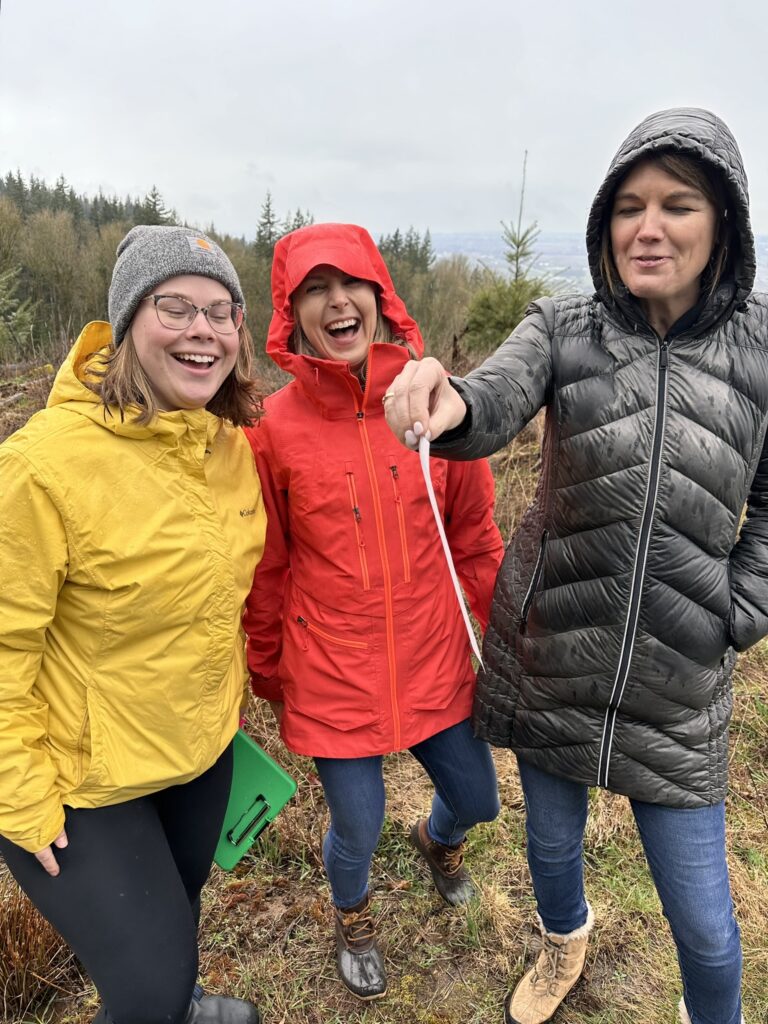Twenty K-5 educators gathered this past March for a regional workshop hosted by the Whatcom County Chapter of the Washington Farm Forestry Association and Pacific Education Institute focused on meaningful forest education. The day began at Nooksack Elementary School, with many of the participants having joined from Nooksack, Sedro Woolley, and Bellingham school districts. Participants first learned about the history and current restoration initiatives of the Nooksack Tribe and identified ways to integrate Indigenous knowledge into their work with students.

PEI South Sound FieldSTEM Coordinator and WA State Project Learning Tree Coordinator Lara Tukarski then led participants in a movement-based activity in the school library to generate awareness of sustainably managed forests as a renewable source of raw materials. With the help of PEI Northwest FieldSTEM Coordinator Amy Keiper, participants organized their thinking around natural resource management and practiced respectful discourse tied to a spectrum of viewpoints related to natural resource management. Next, participants zipped up their coats and journeyed outside to measure the carbon dioxide equivalency of trees near the school, calculating the amount of carbon stored in the trees and discussing the role of managed forests on the landscape of a changing climate.
Westergreen Family Farms landowner and industry expert Tom Westergreen and teacher Lisa Tiemersma, Vice President of the Whatcom County Farm Forestry Association, then shared stories of land ownership and discussed the work of their family farm as part of the community.
Tom, a forester and former state officer for the Washington Farm Forestry Association, provided a tour of Westergreen Tree Farm for the educators, sharing his management practices as well as important considerations regarding timber sales, family values, and ecosystem health. Participants assessed ecosystem biodiversity on the tree farm as part of a Project Learning Tree (PLT) “bio-blitz” activity, collecting data on species diversity, soil temperature, and landscape features to characterize the relationship between biotic and abiotic components of the land.
